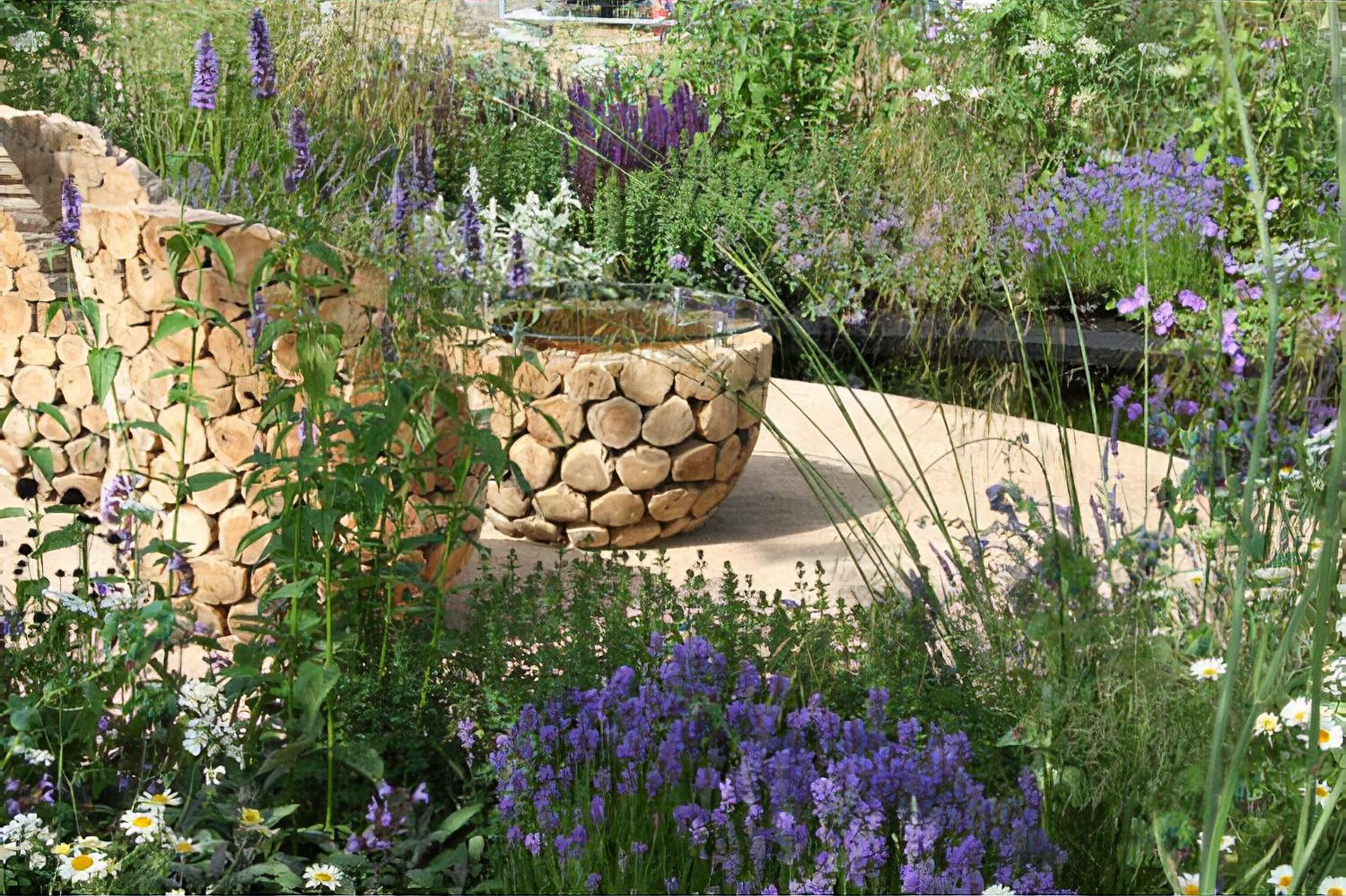The Copella Bee Garden

13 Jun 2010 | 3 min read
Copella has joined forces with award-winning landscape designer, Sadie May Stowell, to raise awareness of the plight of the British bee.

‘The Copella Bee Garden’ highlights the topical issue of bee decline in the UK. The garden is designed from a bee’s point of view and showcases a supporting environment for bees, whilst educating the public about the things they can do to help the British bee.

The Garden is designed to attract and support honey bees - the layout of the space taking inspiration from the rhythms of the bee’s ‘waggle dance,’ whilst the overarching concept reflects the journey from plant to hive.

An interactive sculptural building, based on a natural bee hive, will be encompassed by rolling earth banks resembling ridge and furrow patterns. Dessert apple trees and native shrubs establish strong structural shapes throughout and a winding path weaves its way through the garden creating strong curving shapes. A still pool echoes the curvilinear design of the central seating area. Planting has been chosen to attract bees and includes herbaceous areas, a wildflower meadow and a clover lawn.

All the plants in the garden have been specially selected to attract bees. Dessert apple trees will create strong shapes throughout, whilst herbs such as Hyssop, Lavender and Oreganum amongst other herbaceous perennials will be interwoven with bee attracting annuals like Phacelia tanacetifolia.

Sadie initially trained in Fine Art, where she started to explore colour, texture, form and shape through the use of paint and textiles. Basing her work on natural forms and plant material stimulated her to move on to explore the three-dimensional aesthetics of landscape design. She has exhibited at the Malvern Spring Flower Show and Hampton Court Palace Flower Show, where she was awarded an RHS Bronze Medal.

Plants list
Click on any of the green highlighted plant names below to read more and to add to your own plants list.
Shrubs & Trees:
Acer campestre
Corylus avellana
Malus domestica ‘Starking’
Malus domestica ‘Golden Pearmain’
Perennials:
Agastache ‘Black Adder’
Anthemis ‘Sauce Hollandaise’
Deschampsia cespitosa
Geranium ‘Mrs Kendall Clarke’
Hyssopus officinalis
Lavandula ‘Grosso’
Melianthus major
Nepeta ‘Six Hills Giant’
Origanum ‘Rot Kugel’
Salvia officinalis ‘Purpurea’
Scabiosa ‘Chile Black’
Stachys byzantina
Stipa gigantea
Thymus ‘Pink Chintz’
Trifolium rubens
Verbascum ‘Gainsborough’
Verbena bonariensis
Annuals:
Ammi majus
Cerinthe major
Helianthus debillis ‘Key Lime Pie’
Orlaya grandiflora
Phacelia tanacetifolia
